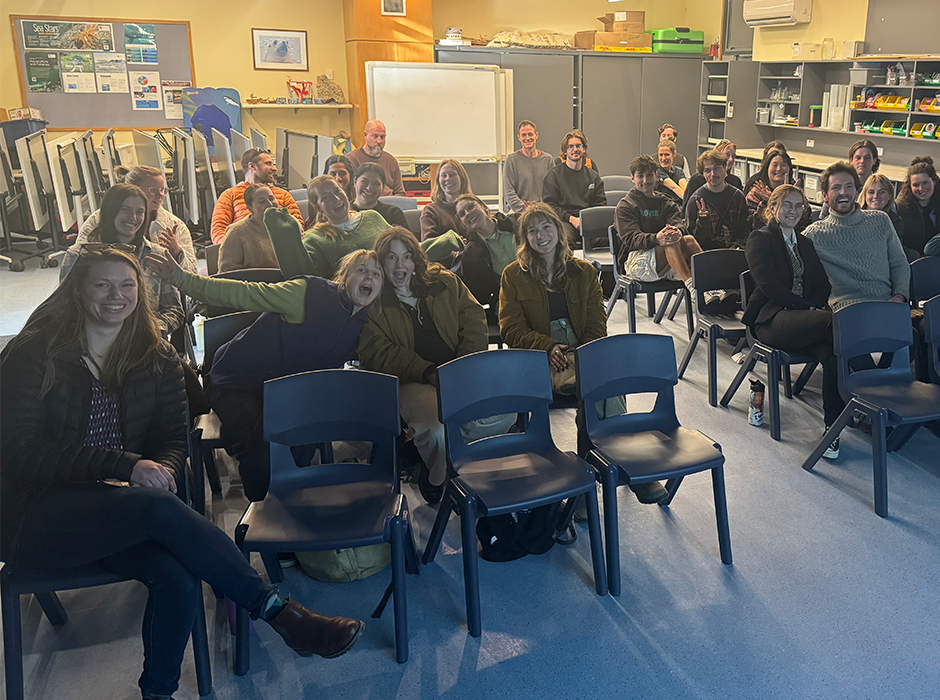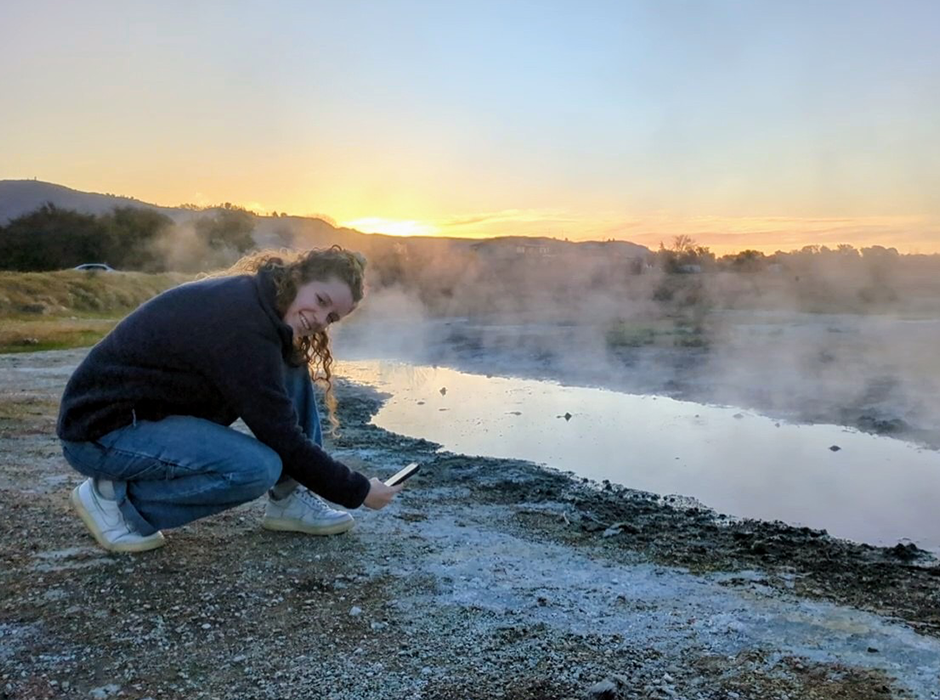
The Department of Marine Science's inaugural postgraduate student colloquium is being hailed as a success. Pictured are some of the people taking part on the day.
The inaugural Marine Science Colloquium is being hailed as a successful “two birds, one stone” event.
Doctoral student Claudia Hird says about 50 marine science postgraduate students and staff gathered at the Portobello Marine Laboratory recently for the event.
It was an opportunity for fourth year students to watch masters and PhD presentations and learn some skills to implement in their own presentations. The event also provided a chance for the presenters to practice their talks for the AMSA-NZMSS (Australian Marine Sciences Association-New Zealand Marine Sciences Society) 2024 Conference held in Hobart in September.
“It was kind of like a ‘two birds, one stone’ kind of event. And also, just to help the department mingle a little bit more,” Claudia says.
“Everyone had a really good time, from what I heard, and lots of people got a lot out of it. Hopefully, it will be a yearly thing where everyone can come together and present their work and listen to each other's voices.”

Doctoral student Claudia Hird is the Department of Marine Science's postgraduate representative this year.
Marine Science doctoral candidate Saskia Foreman says Claudia did a “fantastic job” of organising the colloquium.
“It was incredibly beneficial for preparing for conferences and for educating fourth-year students on how to give a good presentation.”
The colloquium forced Saskia to “buckle down” and find the story within her data three weeks sooner than she had planned to present at the NZMSS conference, which gave her extra time to polish and practice her presentation.
“I guess I am really trying to say a big thanks to Claudia.”
Claudia completed her undergraduate degree in Melbourne, and her masters in Hobart. She arrived in Ōtepoti from Australia in February this year to start her PhD through the Department of Marine Science.
Claudia is looking at the microbiomes of organisms including fish, birds, vegetation, and macroinvertebrates that “hang around geothermal hotspots” and then comparing them to those found in non-geothermal areas.